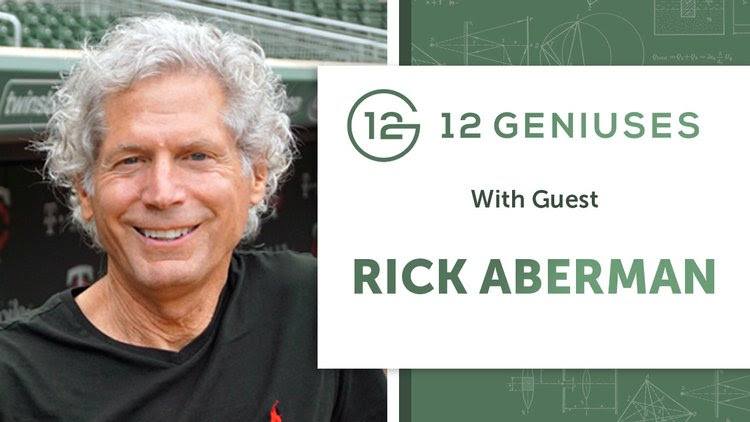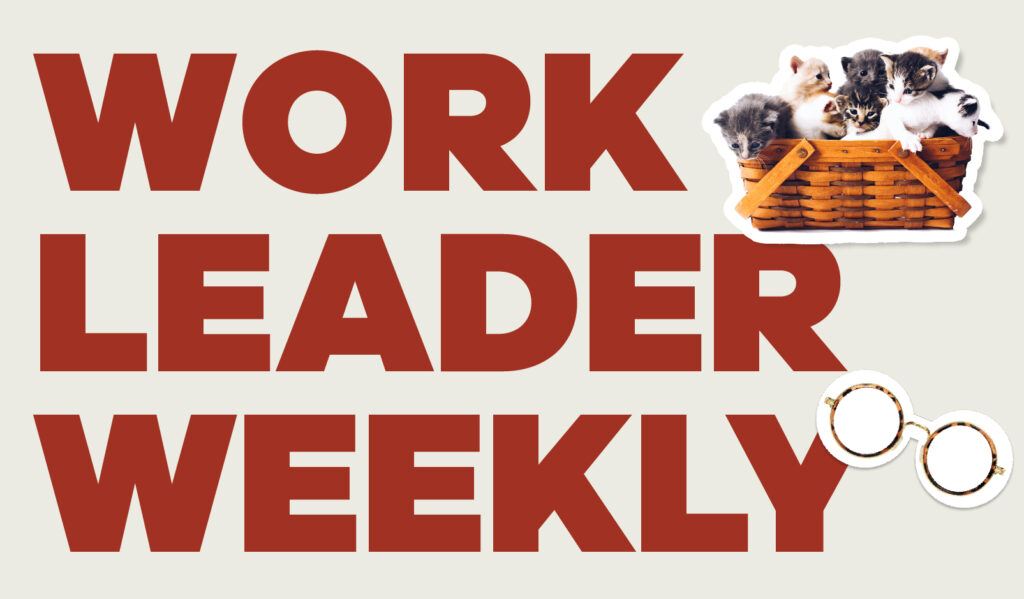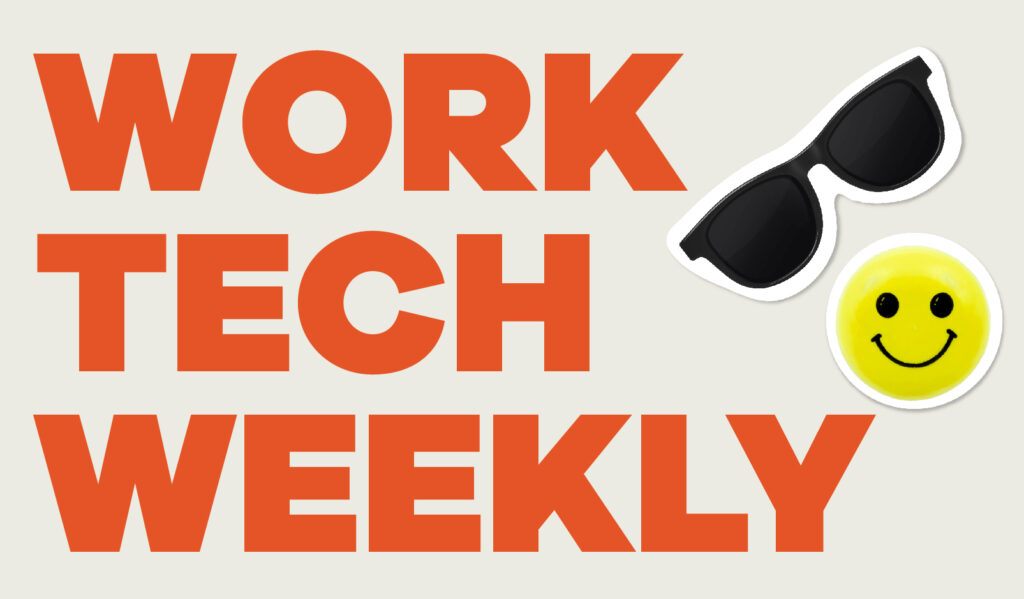Hello.
The EEOC has actually approved using AI for hiring (the devil is in the details, though), HR technology budgets cool down, and SVB employees blame remote work for the bank’s downfall. But first, what can we take away from tougher times?
Let’s jump into it.
Bright sides of bad times

The world can feel really heavy at times. For work leaders, those times are right now. Your employees are anxious. Your leaders are anxious. Everyone is anxious.
I talked to a C-level leader last week whose company was affected by the Silicon Valley Bank collapse. In 72 hours, he went from thinking the company was on the brink to back to business as usual. Total whiplash.
“Like the worst kind of practical joke you could imagine.”
But that moment of personal clarity driven by a pivotal crisis also reignited his passion for his business in an instant. Like many folks, he had spent the last few months going from one challenge to the next. Rolling with the punches as they say. Feeling burned out and bogged down.
The mechanizations of being a leader in this pressure cooker aren’t easy. But these moments also offer a rare opportunity to tear away what isn’t important and focus on what truly matters. It can reveal what you stand for, and what you don’t.
I bring this up now because I read a surprising article from Ryan Roslansky, the CEO of LinkedIn. The title: Your next best employee is most likely your current employee.
Here’s a company that benefits greatly whenever an organization needs to hire someone, especially those in the world of white-collar workers. Single seat licenses for LinkedIn Recruiter go for thousands of dollars a year. The company makes plenty of money on pay-per-click job advertisements as well. When LinkedIn was reporting revenue separately, the talent acquisition business made up roughly half of its total revenue.
Why would he tell people not to potentially be a customer of his service?
For one, you have to read the article to hear about his journey. He joined LinkedIn right before the pandemic and has been navigating a fascinating time at the company.
But the second one is easier to encapsulate: LinkedIn’s vision is to create economic opportunity for every member of the global workforce. Strip away more than a decade of complaints about the platform from yours truly and you’ll find that a moment of crisis gave the CEO of a company fueled by turnover a clear way to realize a bold vision that doesn’t include using their services.
The cynic inside me wants to be mad but he has to sit this one out.
Times of crisis can be beneficial. This isn’t about making lemonade out of lemons or pushing a narrative of hope. In fact, when a crisis reveals reality, there’s a certain ugly truth about it. We have to face ourselves in the starkest terms. It isn’t always positive. Doubling down in a struggling environment is tough, but what happens when the crisis reveals that you’re in the wrong place? That a formerly cozy stability masked reality?
The bright side is, that if you choose to acknowledge it, you know the truth. The other bright side is that when you know the truth, you can choose how to act accordingly. How hard will it be to act? I can’t tell you, but probably pretty hard.
Winston Churchill said, “Never let a good crisis go to waste.” While it isn’t always easy, it is worth it.

12 Geniuses Podcast
Discover leadership lessons from a sports psychologist in the latest episode of the 12 Geniuses podcast. Host Don MacPherson sits down with Dr. Rick Aberman, a pioneer in the field who was a member of the Minnesota Twins medical staff for 15 years and currently works with elite athletes and corporate executives. Learn how business leaders and coaches can more effectively assess talent, help team members move past failure, manage emotions, build healthy work cultures, and help their people live full, well-rounded lives.
Quick hits from around the web
What else is happening?
What companies that provide an equitable employee experience do differently. Demonstrated diversity, transparency about decisions, and fairness. (Yahoo Finance)
Alternatives to layoffs in tech: Maintaining a stable workforce. Making the case for rethinking mass layoffs as a settled approach to workforce transitions. (ReadWrite)
Work, play, rest: How to bring balance to a (hybrid) workday. How experts in human behavior hope you’ll make time to recover from work. (Psychology Today)
LinkedIn introduces AI-written job posts. A good reminder for AI enthusiasts and skeptics that Microsoft owns LinkedIn and has a sizable investment in OpenAI. (ERE)
How role ambiguity can make success at work hard to define. Companies and individuals owe it to themselves to know what a job entails. (HR Brew)
SVB employees blame remote work for bank failure. The blame game continues, each turn more unbelievable than the next. (Axios)
In EEOC settlement, job board agrees to use AI to look for bias. Yes, the EEOC has actually approved a use of AI in hiring, but not the way you’d think. (HR Dive)
Trade group sues to block U.S. labor board memo on anti-union meetings. Captive audience meetings are defended as free speech. (Reuters)
‘Zoom town’ settlers choose between their job or their house. People who moved far away from job centers are being asked to come back. (Realtor.com)
Workday’s response to AI and machine learning. Nothing groundbreaking from the HR and financial giant, but some important developments for those in their ecosystem. (Josh Bersin)
The way we work is about to change. Microsoft’s rapid introduction of OpenAI technologies into core products is going to shift things quickly. (CNN)
HR tech budgets fall as workloads increase. Analysts predict a quiet year for HR tech. I’m not so sure about that. (HCM Technology Report)
Why your ESG efforts must recognize employees as stakeholders. Lots of talk about ESG this week, but there’s one group you shouldn’t forget. (TLNT)
Mandatory arbitration won’t stop us from enforcing the law. Labor enforcement reminds companies and employees that arbitration clauses aren’t blanket immunity. (US Department of Labor)
We’re not in Kansas anymore
Silicon Valley and First Republic Banks aren’t the only storm that’s been affecting the Bay area in recent weeks. A series of atmospheric rivers have dumped inches of rain and feet of snow in drought-prone Northern California.
Unfortunately, things got a little worse. Now it’s raining couches (via Boing Boing):
Yesterday blowing wind hurled a couch off the deck of one San Francisco skyscraper and blew it to the street below. The landing was not so great, but no one was reported as being injured.
No status on the Wicked Witch of the East, yet.

That’s it for this week!
Lance




